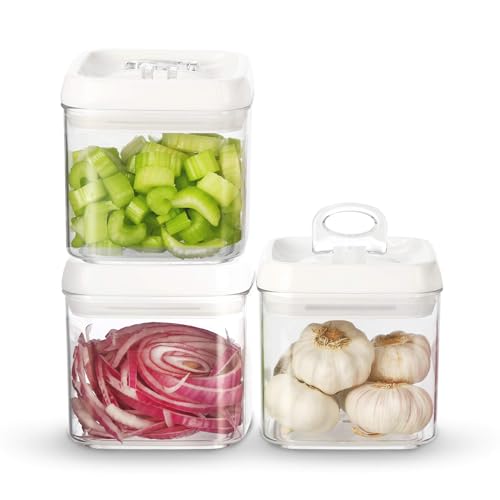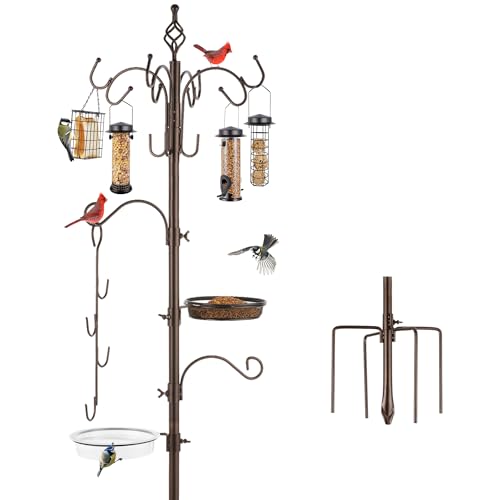


While many human foods are safe for our furry companions, the mix of herbs commonly used in Italian cuisine raises questions. It’s best to avoid sharing this blend with your pet. Ingredients like garlic and onion, frequently found in these mixes, can be toxic to canines, potentially leading to digestive issues and more severe health problems.
In my own experience, I’ve accidentally seasoned my dog’s meal with a pinch of this herb mix, thinking it would be harmless. Shortly after, I noticed some unusual behaviour–excessive drooling and a bit of discomfort. A quick call to the vet confirmed my suspicions; certain components in that seasoning weren’t suitable for my canine friend. It’s a lesson learned, and I now stick strictly to dog-safe ingredients in their meals.
If you want to add flavour to your dog’s food, consider using dog-friendly herbs like parsley or basil in moderation. Always consult your vet before introducing new elements to their diet. Keeping our pets safe is a priority, and avoiding potentially harmful ingredients is a crucial step in that direction.
Is Italian Seasoning Safe for Dogs
Using this mix in your pet’s meal can raise some concerns. Certain components, like garlic and onion, are toxic to canines. These ingredients can lead to gastrointestinal issues and more severe health problems over time. It’s critical to check the label for these harmful elements before adding any blend to your furry friend’s diet.
Potential Risks
- Garlic: Even in small amounts, it can cause damage to red blood cells.
- Onion: Toxicity can lead to anemia and other serious health complications.
- Excessive Salt: High sodium levels can result in dehydration and sodium ion poisoning.
Safe Alternatives
If you’re looking to add flavour to your pet’s meals, consider these options:
- Plain cooked chicken or turkey.
- Carrots and peas, which are safe and nutritious.
- Herbs like parsley and basil can be safe in moderation.
Always consult your vet before introducing anything new into your dog’s diet. Their well-being should be your top priority!
Common Ingredients in Italian Seasoning and Their Effects on Dogs
Many blends contain garlic and onion, both of which can be harmful to canines. These ingredients can damage red blood cells, potentially leading to anaemia. Even small amounts can have negative effects, so it’s best to keep these out of your pet’s meals.
Oregano, a common herb in these mixtures, is generally safe in small quantities. It has antioxidant properties, which can be beneficial. However, excessive amounts might lead to gastrointestinal upset.
Another frequent component is basil. This herb is non-toxic and can even offer some health benefits, such as anti-inflammatory effects. A small sprinkle can add flavour without posing any risks. Just ensure it’s fresh or dried without added salt or preservatives.
Rosemary is also present in many blends. While it’s safe in moderation and may aid digestion, large quantities could lead to stomach upset. Always monitor for any adverse reactions when introducing new flavours.
Thyme adds a nice touch to dishes. It is generally safe for pets and may even have some antimicrobial properties. However, like other herbs, it should be used sparingly.
In summary, while some ingredients found in these blends can be safe, others pose risks. Always prioritise your furry friend’s health and consult a veterinarian if unsure about adding any new flavours to their diet.
Potential Risks of Feeding Pets Italian Herbs
Mixing these flavourings into a pet’s meal can lead to various health complications. While some ingredients might seem harmless, there are specific risks that owners should consider.
Garlic and Onion
These two components are often included in many herb blends. Both garlic and onion can be toxic, causing damage to red blood cells. Symptoms such as vomiting, diarrhoea, and lethargy may appear after ingestion. Even small amounts can accumulate over time, leading to serious health issues.
Salt Content
High sodium levels can lead to increased thirst and urination. In severe cases, it can cause sodium ion poisoning, resulting in symptoms like tremors, seizures, or even death. Adjusting the amount of salt in a pet’s diet is crucial, especially for those with pre-existing health conditions.
Herbs like rosemary and thyme are generally safe in small quantities, but they can cause digestive upset if consumed in large amounts. Always check with a veterinarian before adding any new ingredients to your pet’s meals.
In essence, while some flavourings can enhance human meals, their impact on our furry friends can be quite different. Prioritising their health means being cautious about what goes into their food.
Signs of Adverse Reactions in Pets After Consuming Seasoning
If your furry friend has ingested some flavourings, watch for these key symptoms. You might notice gastrointestinal disturbances such as vomiting or diarrhoea. These signs can surface within a few hours of consumption. Keep an eye out for excessive drooling, which can indicate discomfort.
Another important reaction to monitor is changes in behaviour. If your companion seems unusually lethargic or displays signs of distress, it’s crucial to assess the situation further. A sudden loss of appetite could also be a warning sign that something isn’t right.
In more severe cases, look for signs of allergic reactions. Swelling around the face, paws, or throat can be serious and may require immediate veterinary attention. Difficulty breathing is another alarming symptom that should never be ignored.
While some ingredients may seem harmless, even small quantities can trigger negative effects in sensitive animals. If you suspect your pet has consumed something harmful, consulting your vet is always the best course of action. For those looking for a diet that helps soothe anxious pets, consider checking out the best dog food for anxious dogs.
Alternatives to Italian Seasoning for Dog-Friendly Meals
Instead of using blends that may not be suitable for your furry friend, consider fresh herbs such as parsley, basil, and rosemary. These options can add flavour without the risks associated with certain spices. Parsley is particularly beneficial as it aids in freshening breath, while basil has anti-inflammatory properties.
Herb Combinations
A simple mixture of these herbs can elevate your pup’s meals. For instance, finely chop equal parts of parsley and basil, and sprinkle it over boiled chicken or vegetables. This not only enhances taste but also ensures your pet enjoys a nutritious meal. Rosemary can be added in moderation due to its strong flavour; it may also have antioxidant benefits.
Vegetable Additions
Incorporating dog-friendly vegetables like carrots, green beans, and sweet potatoes can create a delicious base for meals. Roasting these with a bit of olive oil and fresh herbs can provide a satisfying dish. Dogs often enjoy the natural sweetness of these veggies, making mealtime more enjoyable without harmful additives.
Consulting Your Vet: When to Seek Professional Advice
If your furry friend consumes anything unusual, including culinary herbs, contacting your veterinarian is crucial. They can provide tailored advice based on your pet’s specific health profile.
It’s especially important to consult a vet if your canine companion exhibits any signs of discomfort or distress after ingesting unfamiliar substances. A quick chat can help clarify whether the situation warrants further investigation or treatment.
Consider scheduling an appointment if your pet has underlying health issues or is taking medication, as certain ingredients may interact adversely with their condition or prescribed treatments.
Keep a close watch on your pet’s behaviour and dietary habits. If you notice persistent vomiting, diarrhoea, or lethargy after they’ve had access to any culinary additives, reach out to your vet without delay. Timely intervention can often prevent more serious complications.
Document any unusual behaviours or physical changes. This information will assist your vet in making an accurate assessment and formulating an appropriate treatment plan.
| Signs of Distress | Recommended Action |
|---|---|
| Vomiting | Contact your vet immediately |
| Diarrhoea | Monitor closely; seek advice if persistent |
| Lethargy | Schedule a vet visit |
| Loss of appetite | Consult your vet |
In any case of uncertainty regarding your pet’s diet, your veterinarian remains the best resource. They can provide clarity and peace of mind, ensuring your companion stays healthy and happy.






